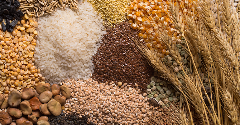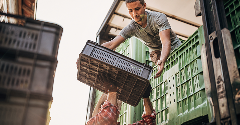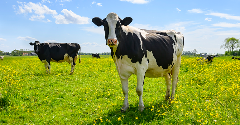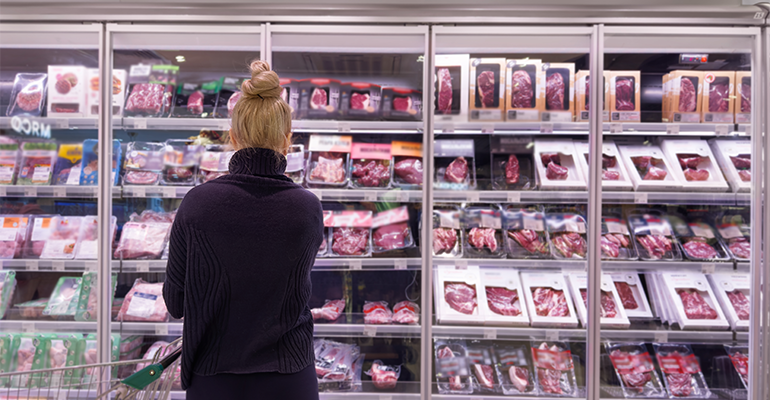News
Why the future of alternative protein is fermented fungi
16 Mar 2022Fungi fermentation has stepped into the ring in a big way in recent years, and the number of companies that are looking to mycoprotein as a method to manufacture plant-based alternatives has proliferated.
Alternative protein options abound in today’s market. However, not all options are created equal, and one of the oldest methods of recreating a meat-like texture is resurfacing as a front-runner positioned to revolutionize plant-based protein. Not only is mycoprotein high in dietary fibre, low in fat and full of riboflavin, folate, phosphorus, zinc, choline and manganese, but it is also a highly versatile ingredient.

Major manufacturers rethink mycoprotein
Ingredients supplier Novozymes has recently pushed manufacturers to rethink their plant-based protein sources and consider fungi as a means to produce sustainable protein. In an open call last autumn, the company announced its a global platform “to cultivate new business collaborations that scale up the most promising innovations and ideas around how to use fungi as a source of protein.”
Similarly, Unilever announced a new partnership with the European food tech company Enough, which uses a zero-waste fermentation process to produce mycoprotein. Alternative protein startup The Better Meat Co. announced last year that it would open its own mycoprotein fermentation plant at the same time that it unveiled a line of mycoprotein meat analogue ingredients. US-based Meati also works with mycelium as a protein alternative, but unlike some of its competitors, the fermented fungi form the bulk of its products. Estonian alternative protein company Meet Future is using the ingredient to develop whole cut seafood analogues with limited ingredient lists.
“We want to rethink and advance protein to find innovative ways to help feed the world sustainably,” Amy Louise Byrick, executive vice president of strategy and business transformation at Novozymes said in a statement.
The use of fungi as a protein substitute is not a new idea. In 1985, British manufacturer Quorn became a pioneer in the space when it introduced fermented mycoprotein as a vegetarian meat solution and has quietly but successfully continued to produce its recipe over the years.
Fungi furnish environmental stability
The versatility of this fungi ingredient is not the only reason that mycoprotein is well-positioned in the market for future growth. Its production is also far less taxing on the environment. Producing Enough’s flagship mycelium product Abunda uses 97% less feed, 93% less water and 97% lower CO₂ emissions than beef, according to the company.
“Producing vast quantities of healthy and sustainable protein is one of the most urgent global priorities,” said Andrew Beasley, commercial director of Enough. According to the United Nations Climate and Clean Air Coalition report, human-caused methane emissions from agriculture now stand at 42% of total emissions.
Indeed, the United Nations says about two-thirds of food system emissions come from agriculture, land use and changes in land use. In the US, data from the Environmental Protection Agency (EPA) showed that agriculture accounted for 10% of the country’s overall greenhouse gas emissions in 2019.
The continued pressure on the environment from industrial agriculture has pushed consumers to demand more sustainable alternatives from companies, and manufacturers are responding. Research from Boston Consulting Group and Blue Horizon Corporation cited by Unilever indicate that Europe and North America will reach “peak meat” by 2025. Following that benchmark, the consumption of conventional meat will fall and there will be “realistic alternatives” for nine out of ten of the world’s favourite dishes. In conjunction with this evolution, the global meat-free sector is expected to hit $290 billion (€264.8 billion) in 2035.
Related news

Mintel releases its global food and drink trends for 2025
15 Oct 2024
Heading into 2025, Mintel has identified four key trends that food and beverage brands will need to keep their eyes on to stay competitive. We explore these four trends.
Read more
Surge in children's hydration market driven by underhydration concerns and celebrity endorsements
9 Oct 2024
The children’s hydration market has seen a dramatic increase in sales, rising by 1,179% year-over-year, according to a new report from market research firm SPINS. This surge is being driven by two main factors: growing concerns about underhydration in ...
Read more
Sustainable grains present a healthy growth opportunity
3 Oct 2024
Food insights provider SPINS unveils the latest trends in the sustainable grains field, exploring how seven leading grains show healthy growth despite challenges in the global value chain.
Read more
Will we see a wave of NPD that focuses on insulin management?
1 Oct 2024
As a new study finds protein and fats can help manage insulin, food manufacturers are building on emerging GLP-1 platforms and supporting nutritional guidance.
Read more
New environmental food scoring standards emerge
30 Sep 2024
EIT Food and Foundation Earth collaborate to launch environmental food scoring for products entering the global supply chain.
Read more
Africa progresses with food transformation strategy
19 Sep 2024
Large-scale efforts are underway to drastically change the African food sector with a $61 billion (€55 bn) set of proposed transformation plans to be implemented across forty countries. Yet there are concerns that this initiative severely jeopardises s...
Read more
European Commission releases new supply chain recommendations
6 Sep 2024
The European Union’s (EU) legislative arm publishes its latest guidance on protecting the market’s food supply chain against current and future crises.
Read more
Tesco trials methane mitigation supplement for dairy cattle
5 Sep 2024
Tesco is trialing a methane-reducing feed supplement for one of its key UK dairy farms, sustainable UK milk producer Grosvenor Farms.
Read more
European consumers want more freedom to choose biotech-based food
3 Sep 2024
Survey findings point to growing levels of interest in cultivated meat as European consumers say they want the freedom to choose the lab-based products.
Read more
Will ‘foie gras’ become the EU’s first approved cultivated meat?
20 Aug 2024
French startup Gourmey has submitted its cultivated foie gras for approval in the European Union (EU), signalling the first application of its kind in the region.
Read more